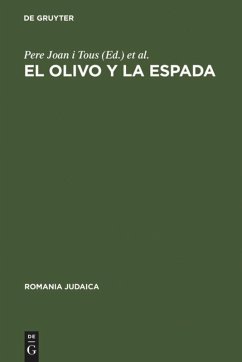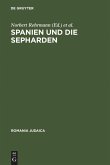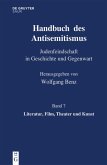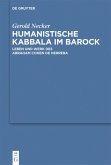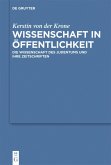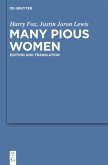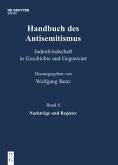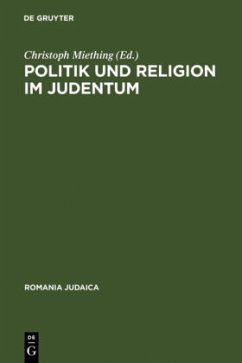What development did anti-Semitism take in Spain when, after the Banishment Edict (1492), the country was no longer a locus of co-existence for different ethnic groups? This was the topic central to the colloquium in Konstanz (May 2000), the results of which are presented here. The colloquium united anthropologists, historians and literary scholars. This interdisciplinary approach focused on the factors, spaces, figures and voices involved in anti-Jewish (and hence anti-Semitic) discourse, both in their historical context and in their literary representation. On the latter issue, as much attention is given to the apologetic as to the critical aspect.
Die Buchreihe "Romania Judaica" umfaßt wissenschaftliche Monographien, Kongressakten und Aufsatzsammlungen zur Kulturgeschichte der Juden in den romanischen Ländern. Sie ist interdisziplinär ausgerichtet und will ein Forum der Begegnung von aschkenasischem und sefardischem Judentum und christlicher Welt sein. Im Mittelalter steht die Romania trotz der Verschiedenheit der lokalen Ausprägungen für eine mediterrane Einheit der jüdischen Kultur. Das moderne Judentum hat seinen Ursprung im 12./13. Jahrhundert, wo jüdische Gelehrte intensiv am interkulturellen Austausch zwischen christlicher und islamischer Welt beteiligt sind. Humanismus und Renaissance in Italien empfangen wesentliche Impulse durch Kabbala und jüdische Schriftgelehrsamkeit. Die Geschichte der jüdischen Emanzipation seit der Aufklärung ist ohne Bezugnahme auf Frankreich, wo heute die größte jüdische Gemeinde in Europa lebt, nicht zu verstehen. Schließlich hat sich seit Anfang des Jahrhunderts in Lateinamerika ein eigenes jüdisches Leben entfaltet. Neben den USA und Israel ist die romanische Welt deshalb heute der wichtigste jüdische Lebensraum. Der Erforschung ihrer Vielfalt und Besonderheiten bietet diese Buchreihe eine Plattform.
Publikationssprachen sind Deutsch, Englisch oder Französisch.
Die Buchreihe "Romania Judaica" umfaßt wissenschaftliche Monographien, Kongressakten und Aufsatzsammlungen zur Kulturgeschichte der Juden in den romanischen Ländern. Sie ist interdisziplinär ausgerichtet und will ein Forum der Begegnung von aschkenasischem und sefardischem Judentum und christlicher Welt sein. Im Mittelalter steht die Romania trotz der Verschiedenheit der lokalen Ausprägungen für eine mediterrane Einheit der jüdischen Kultur. Das moderne Judentum hat seinen Ursprung im 12./13. Jahrhundert, wo jüdische Gelehrte intensiv am interkulturellen Austausch zwischen christlicher und islamischer Welt beteiligt sind. Humanismus und Renaissance in Italien empfangen wesentliche Impulse durch Kabbala und jüdische Schriftgelehrsamkeit. Die Geschichte der jüdischen Emanzipation seit der Aufklärung ist ohne Bezugnahme auf Frankreich, wo heute die größte jüdische Gemeinde in Europa lebt, nicht zu verstehen. Schließlich hat sich seit Anfang des Jahrhunderts in Lateinamerika ein eigenes jüdisches Leben entfaltet. Neben den USA und Israel ist die romanische Welt deshalb heute der wichtigste jüdische Lebensraum. Der Erforschung ihrer Vielfalt und Besonderheiten bietet diese Buchreihe eine Plattform.
Publikationssprachen sind Deutsch, Englisch oder Französisch.

